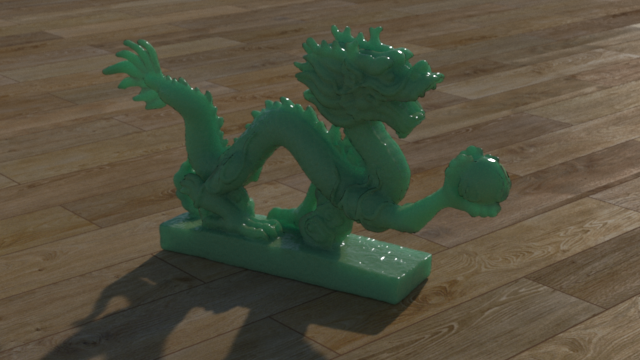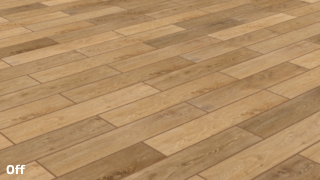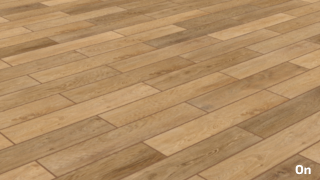Contents
PxrTileManifold will compute st mapping coordinates to create textured tiles over a 2D surface. This manifold is able to introduce randomness to hide repeating patterns, if need be.
In the example above, the wooden floor was created by plugging a PxrTileManifold in a PxrMultiTexture to assemble multiple textures into a tiled wooden floor. PxrMultiTexture used 10 different wood plank textures that were randomly picked and graded.
See below for the shading graph and the source textures.










PxrTileManifold can only be used with PxrMultiTexture.
Input Parameters
Number of Textures
The number of textures you want to use. You should have at least one texture and PxrMultiTexture supports up to 10 textures.
This value will be passed to connected PxrMultiTexture nodes, so you may control the number of variations from a single location.
Texture Order
The textures can be assigned in different ways. They can either be enumerated in the order in which they appear in the PxrMultiTexture node or be randomly selected.
| Value | Mode |
|---|---|
| 0 | Ordered |
| 1 | Random |
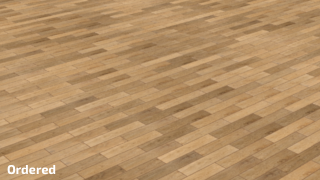
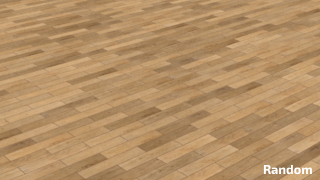
Pattern Settings
Grid offset
The textures are organised in a regular grid arrangement with an optional offset. This is useful for brick or wooden floor patterns, for examples.
Grout Width
The grout is the space between the tiles. When set to 0.0, there is no space between the tiles. The maximum value is 1.0, where the tiles disappear.
Tile Bevel Width
This parameter will control the width of the transition from the grout to the tile. This can be used to shape the tiles' displacement amplitude.
Swap Tile ST
Sometime your textures are not oriented correctly and this control will rotate the tile's local st coordinates by swapping s and t.
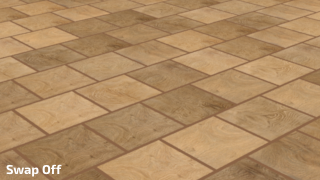
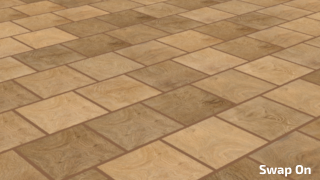
Randomize
Random Source
For each object to get a different variation, you need to select something unique about them to create a unique seed. You have a choice between the object's id and the object's name.
These attributes are created by the software outputting the RIB and depending on your application (Maya, Katana, etc...), one may work better than the other.
| Value | Source | Depends on |
|---|---|---|
0 | Object id | Attribute "identifier" "float id" |
1 | Object Name | Attribute "identifier" "string name" |
Extra Seed
If you want one of these patterns to compute a different variation, set the randomExtraSeed to a non-zero value. This parameter will only influence the randomization parameters (randomOrientation, randomFlipS, etc).
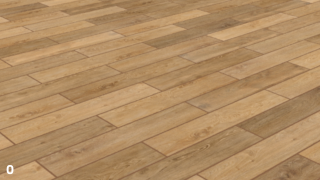
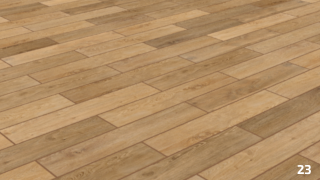
Random Orientation
Randomize the orientation of the textures by randomly swapping s and t.
Random S Flip
Randomly flip the direction of s.
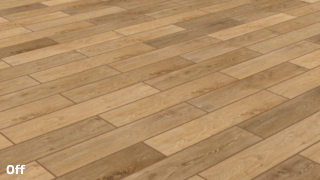
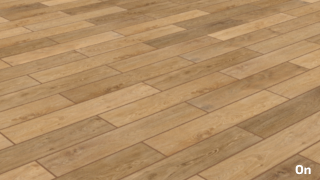
Random T Flip
Randomly flip the direction of t.
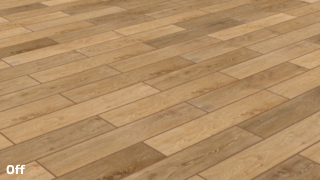
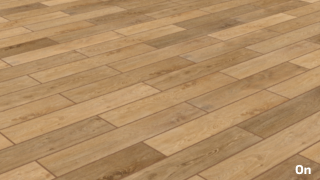
Random S Offset
Randomly offset s. You should probably avoid this if your textures are not tiling seamlessly.
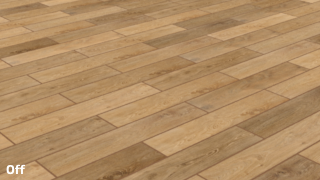
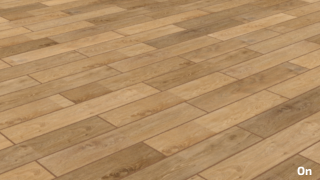
Random T Offset
Randomly offset t. You should probably avoid this if your textures are not tiling seamlessly.
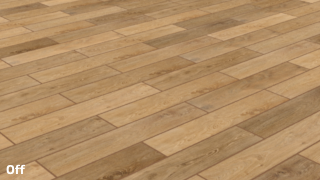
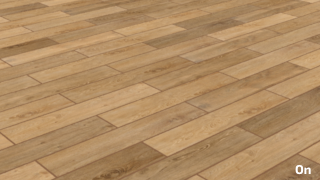
Manifold 2D
Angle
Global rotation angle around the origin of the st domain.
Global Scale
Scale the st domain while preserving the aspect ratio defined by scaleS and scaleT.
Scale S
Frequency of the feature in S.
Scale T
Frequency of the feature in T
Offset S
Offset from origin in S.
Offset T
Offset from origin in T.
invert T
Invert the direction of T.
PrimVar S/ST
Name of custom 1D S or 2D ST primvar.
PrimVar T
Name of custom 1D T primvar.
Output Parameters
Result
This is a regular 2D manifold output.
Result S
Outputs only the computed S value.
Result T
Outputs only the computed T value.
Result Multi
Outputs a multiManilfold, compatible with PxrMultiTexture.
Result Mask
This is a color output containing the following data:
| Channel | Description |
|---|---|
| R | 1.0 if this is an odd tile in S, 0.0 otherwise |
| G | 1.0 if this is an odd tile in T, 0.0 otherwise |
| B | Grout mask |

